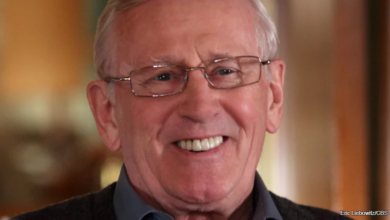Tom Selleck Is Right About Blue Bloods Ending

Lead actor Tom Selleck’s frustration over CBS’ cancelation of Blue Bloods is justified. When CBS decided to cancel the long-running police and family drama after 14 seasons, it sparked a massive fan-led protest to save Blue Bloods. However, that failed to move the needle with CBS executives; similarly, the enthusiasm for another season by cast members such as Selleck, Donnie Wahlberg, and Gregory Jbara did not convince CBS to give Blue Bloods a reprieve.
Blue Bloods’ final season was split into two parts, with the first half airing in the spring of 2024 and the second half set to begin on October 18, 2024. The long hiatus between the two halves of the season gave Selleck and other stars time to try to convince CBS to extend the order to a full season, but unfortunately, this did not materialize, although the network did suggest that a spinoff might be in the works. Thus, Blue Bloods has only eight episodes left until it leaves the airwaves permanently.
Tom Selleck Is Right: Blue Bloods’ Ratings Make The Show’s Cancelation Frustrating

Although Blue Bloods has lost some of its audience over the years, its ratings are still among the highest on television, with an average of 5.3 million viewers watching each episode in season 14 (via TV Series Finale). Blue Bloods was also television’s fourth-highest-rated scripted series in 2024 (via TVLine), further proving its popularity. These ratings are especially impressive considering that Blue Bloods airs at 10 PM on Friday nights, which is a tough time slot to win because many people are not home.
These high ratings on an unpopular television night are a testament to Blue Bloods’ popularity. In the past, a series that consistently cracked the top 10 on a night when few people watch television would have been virtually guaranteed to continue unless the producers and actors decided to stop. Canceling a show that is this popular risks alienating a large audience, especially when some shows that CBS renewed had lower ratings than Blue Bloods.
Blue Bloods’ Cast Wanting To Continue The Show Makes The Cancelation Worse

It’s rare for a cast to stay together for fourteen years; in most cases, actors get restless after a few years and decide to leave so that they can explore other roles, leading to multiple cast changes that can interfere with the quality of the show. One of the reasons that Blue Bloods’ cancelation has been so disappointing is that the cast has not only stuck with the series, but is enthusiastic about continuing to work together. The cast appears to be as much of a family as the characters they play on TV, and it is frustrating that they are forced to stop working together because CBS canceled Blue Bloods.
This type of enthusiasm ought to be treasured, not ignored, as CBS is unlikely to find another series where the actors are so dedicated to the show for well over a decade.
The cast’s enthusiasm not only helps ensure the quality of every episode, but has motivated many cast members to fight for Blue Bloods’ future. Season 14 was green-lit in part because the cast agreed to a 25% pay cut to save costs (via THR), and Selleck, Wahlberg, and other actors associated with the show have pushed hard for its continuation, making public statements in support of renewal and expressing eagerness to continue working. This type of enthusiasm ought to be treasured, not ignored, as CBS is unlikely to find another series where the actors are so dedicated to the show for well over a decade.
Blue Bloods’ Story & Characters Could Have Sustained Season 15 – And Beyond

Blue Bloods’ unique blend of family and cop drama gives it more storyline opportunities than many other shows. The series was never in danger of becoming stale or repetitive because the drama sprung mostly from conflicts between well-established and beloved characters, with the cases of the week being secondary to the way they affected each member of Blue Bloods’ Reagan family. Thus, it could have continued for years to come and still been fresh and original.
Blue Bloods also presented a unique point of view on television. While there are many police procedurals, few have a mission of showing the NYPD in as positive a light as Blue Bloods does. Additionally, the series presented current events in a neutral light, allowing the characters to have different opinions rather than forcing any particular viewpoint into the narrative. This allowed people from across the political spectrum to enjoy Blue Bloods, something that is unfortunately rare in today’s polarized society.




